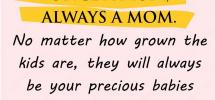Characteristics of a Strict Parent 1. Family First- Behind every troubled teen is a broken family. Many are single parents, but just as many are families that may be together, but distant in every other way. Teens raised by strict parents do not go out with their friends during dinner time or during family activities. Having dinner together is expected, family game night, worship time for the religious, household chores (benefitting whole family), or other activities that include all family members is a must. Kids need a sense of belonging and to feel important so would you rather them get that from their friends/peers or from the parents/family? Family first starts at an early age and can even be established in a broken home. It's a non-negotiable expectation. You must realize our kids get a free ride from us parents in many ways and expecting them to put family priorities before social engagements is not unrealistic. 2. No Abuse or Yelling- Strict parents rarely yell or lose their temper, they don't have to. If you don't want your child to yell or hit you (or others), you can't do it to them. Yelling is demanding rather than commanding respect. Strict parents show respect for their children, modeling respectful behavior. They talk to them and expect the same treatment in return. Teens tend to shut out adults yelling at them, but one way strict parents get through is partaking in an activity with them that the teen enjoys (playing baseball or horseback riding for example). Showing interest in the teen gets their attention better than a yelling match. After the activity, the child is more open to hear what you have to say if you need to talk to them about something in particular. Even better- tie in their favorite activity to a point you are trying to get across to them or set up a meeting with someone they admire or has a job that they want someday and have that person explain to them what it takes to make their dream come true. For example, In the reality show, a strict mom used a horseback riding analogy to tell the teen that horses don't always do as their told, aren't easy to control, and it would be easier to just quit and get off the horse; same as how her mom was probably feeling toward her sometimes. 3. It's ALL Your Business- Most teens nowadays have a life away from home and just as much privacy and seclusion at home too. The downside to giving teens too much privacy is they'll stay home forever- they get privacy, a warm comfortable rent-free or low rent place. Parents should always be in their kids' business, including snooping or random room and cell phone checks. Privacy is like currency- to be earned. My mom was a single parent who worked two jobs and there were no cell phones at the time, but she was always in my business- she randomly called home and I better be there to pick up the phone or she would come home from work immediately...and she would. I never smoked, took drugs and waited until after my teen years to have sex- all the same expectations I have for my children so you better believe I will be in their business. Too many parents wait too long and are afraid to know about their kids' business. Teens are young adults, BUT their brain is still not mature enough to make clear decisions about eveything...so yes, they do need as much guidance as they do freedom. 4. Raising a Capable Adult- My husband's first daughter lived with us full-time when she was 8- she didn't know many of the basics for taking care of herself. This is an example of enabling your child, creating unnecessary challenges. Too much freedom can make a child helpless or hyper responsible. Teens on the reality show were between 16 and 18 and didn't know how to do dishes, shovel dirt, or make themselves a meal. Not only does this create a lazy child or teen, but it contributes to low self-esteem and eventually an adult who can't appreciate accomplishing a task or don't even try. Low self-esteem is a snowball effect and leads to promiscuity, alcohol and drug abuse.Not only should your teen be able to accomplish the small tasks, but they should also know how to weather the rough times and be resourceful as well. 5. House Rules- Every strict family on the TV show had "house rules" and there was no negotiating them. House rules start when your baby is born because they are standards the parents live by too. A short, distinct list of rules gives a child boundaries, such as No yelling, No smoking, No certain kind of clothing, No hitting, No swearing, No Lying,etc. 6. Love- Strict parents are not void of love. In fact they are heavy on showing their appreciation and feelings and giving random hugs and pats on the back. On the TV show the strict parents gave the troubled teens regular hugs, and the teens often stated they hadn't hugged their own parents in a long time. Does it seem sometimes that we hear double for doing something wrong and hear nothing when we do something right? Parents forget to show love and compliments for their children doing something right. We get in an argue, nag, yelling momentum and never get out of the habit. In several studies it shows the most unhappy parents give the least compliments and positive feedback to their children while happier parents tend to have happier children. 7. Charity Work- Doing something for nothing teaches kids to appreciate what they have and create their own feelings of an intangible reward. It teaches them there are other people in the world besides themselves. By nature, teens are self-centered and as parents if we don't curb that trait they become selfish adults. 8. Keeping Busy- This doesn't mean racing from the track meet to dance class and pottery class to a point of exhaustion.Doing chores and things that will benefit the family, especially lighten mom's load help keep a child busy. Responsibilities for pets, yard work, cleaning the house, etc. These duties help the family as a unit and are not self driven or self-rewarded like taking many classes that only benefit the child. A balance of the two is optimal- something the child wants to do and something for the family. 9. Consequences- may be the most important factor. For every action, there is a consequence. Bad actions deserve bad consequences like cleaning out the garbage can or poop patrol in the yard. Good actions deserve good consequences like picking the movie, ice cream, going swimming. The biggest mistake parents make is threatening a consequence and not following through or not matching the punishment to the crime. Grounding a kid for 2 weeks is worthless- it's way too long for even my attention span at age 35. Also grounding is too general a term- what exactly does it mean? Simple psychology states punishment is not as effective as reward, but if you use punishment then make it immediate and/or creative so it will be more memorable. Being creative can pay off. The other night my daughter wouldn't pick up her blocks so I said she could go to sleep with them then. I put her blocks in her bed and it was no longer than a minute before she realized they weren't very comfortable in her bed so she quickly put them away. 10. Keep Talking- Not nagging, but talking. Explain to your children WHY they should behave a certain way and why there are rules. Don't waste your breath on telling them "How many times do I have to tell you..." or " you never...". Instead tell them if they act a certain way in the real world, they could be fired, evicted, or divorced. Don't nag them to include your issues and vent on them, but give them useful advice and pertain it to their life. Use analogies and stories that pertain to them. Lessons in story form are remembered easier. You never know when something you've said will impact them greatly. FEEL FREE TO LIKE TAG SHARE
2014-04-18 05:32:22
Characteristics of
sign in to comment
Be the first to comment





